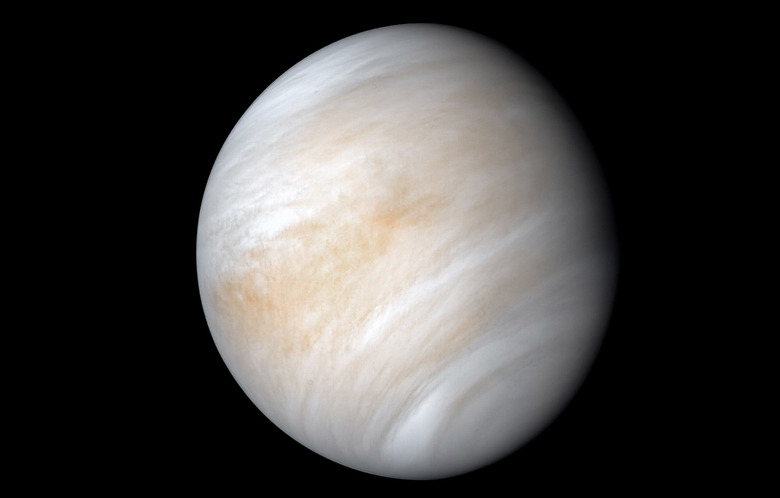Venus Is A 'Russian Planet' According To Russia's Space Chief
- Venus was recently revealed to hold a biosignature in its atmosphere that may indicate the presence of life in some form.
- Russia, which previously landed probes on Venus, has declared Venus to be "a Russian Planet."
- Both NASA and Russia's Roscosmos are dedicated to exploring Venus in the near future.
When the United States landed humans on the moon in the late 1960s they planted an American flag there. The country was in the middle of the space race with the USSR, and it made sense that the US would put a big exclamation point on its achievement by slapping a flag on the lunar surface. The US didn't try to lay claim to the entire Moon, of course, but it was a highly symbolic move.
Now, Russia is doing something similar... only this time it's with Venus. NASA hasn't done a whole lot when it comes to exploring Venus, but Russia did land multiple probes on the planet as recently as 1984. In the wake of the news that biosignatures may indicate life in some form exists on the planet, Russia's space boss has declared that Venus is a "Russian planet," whatever that means.
Russia has been planning a mission to return to Venus for some time. The mission, which is still in the planning stages, is likely to be conducted with some help from NASA. However, speaking with reporters this week, Roscosmos boss Dmitry Rogozin said that another mission is also likely, and it will be conducted without help from other countries.
"Resuming Venus exploration is on our agenda," Rogozin said. "Firstly, we have the 'Venera-D' project in cooperation with the Americans. We are also considering our own mission to Venus. We think that Venus is a Russian planet, so we shouldn't lag behind. Projects of Venus missions are included in the united government program of Russia's space exploration for 2021-2030."
Russia's state-owned TASS news agency reported the news, stating that in May, Lev Zeleny of the Russian Space Research Institute said that the country is already planning "at least three research vehicles" to be sent to Venus, though the type of research those vehicles would be conducted was not specified.
The surface of Venus is an incredibly hostile place, at least when it comes to life and machinery. The probes that Russia sent to the surface didn't last long and were dead within a half-hour in some cases. None of the machines lasted longer than a couple of hours under the intense pressure and heat of the surface.
Obviously, technology has improved since those probes were launched, and it's possible that a lander could survive for significantly longer while returning valuable data. Nevertheless, it's going to be interesting to see if we have a new "space race" on our hands when it comes to exploring Venus.
